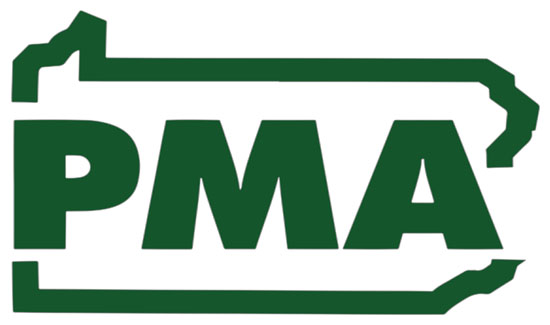Wolf’s RGGI Voided by Commonwealth Court as ‘Invalid Tax’

Pennsylvania’s energy industry and consumers won a massive victory in Commonwealth Court with Wednesday’s ruling that the go-it-alone Regional Greenhouse Gas Initiative (RGGI) regulatory scheme ordered by former Gov. Tom Wolf constitutes a tax, a direct violation of the state Constitution that grants taxing authority solely to the General Assembly.
The majority ruling, written by Judge Michael Wojcik, is in line with what the energy industry, manufacturers, consumers, and the state’s trade unions have argued ever since Wolf’s Department of Environmental Protection (DEP) first proposed the commonwealth join RGGI, a carbon tax consortium of Northeast and Mid-Atlantic states, back in October 2019.
PMA President & CEO David N. Taylor welcomed the Commonwealth Court decision as correct and necessary.
“The Commonwealth Court decision confirms our argument from the very beginning: RGGI is an unconstitutional tax,” Taylor said. “The disgraceful RGGI farce should shame Tom Wolf, whose illegal actions destroyed the Homer City Generation Station, unemployed hundreds of workers, and hollowed out the tax base of a rural community FOR NO REASON. We hope Governor Shapiro shows better judgement and ends the RGGI crisis by not appealing the court’s ruling.”
Wolf’s rulemaking scheme required natural gas and coal-fired electricity generators to buy allowances for each ton of CO2 emitted. It also imposed permitting, monitoring, reporting, and record-keeping requirements on the plants. CO2 allowances would then be distributed to the plants under quarterly regional auctions.
In its ruling, the court rejected former DEP Secretary Patrick McDonnell’s arguments that the “allowance auction proceeds do not constitute a tax.”
“Secretary McDonnell’s position is unpersuasive where it is undisputed that the auction proceeds are to be deposited into the Clean Air Fund, are generated as a direct result of the Rulemaking, and DEP anticipates significant monetary benefits from participating in the auctions,” Judge Wojcik wrote in part.
The court also distinguished a tax from a regulatory fee, which requires no legislative approval. A tax does.
“Where, as here, the moneys generated and received by the Commonwealth’s participation in the auctions are ‘grossly disproportionate’ to the costs of overseeing participation in the program or DEP’s and EQB’s annual regulatory needs, and relate to activities beyond their regulatory authority, the regulations authorizing Pennsylvania’s participation in RGGI are invalid and unenforceable,” the judge wrote. “Stated simply, to pass constitutional muster, the Commonwealth’s participation in RGGI may only be achieved through legislation duly enacted by the Pennsylvania General Assembly …”
Legislative leaders quickly applauded the ruling.
“The unlawful entrance into RGGI by the prior administration was a slap in the face to Pennsylvanians who continue to deal with rising energy prices and increasing inflation,” House Republican Leader Bryan Cutler said in a statement. “Today’s decision by the Commonwealth Court is a positive development in ensuring that RGGI will not add to increasing energy costs on Pennsylvania families.”
Senate Majority Leader Joe Pittman (R-Armstrong, Indiana, Jefferson, and Westmoreland) said in a statement that “today’s ruling by the Commonwealth Court affirming the RGGI Electricity Tax violates our state Constitution is a victory for Pennsylvanians. The Senate Republican Caucus has been unwavering in our commitment to advocate for communities across our commonwealth who would be harmed by the RGGI Electricity Tax. At a time when families continue to feel the strain of inflationary pressure, we must look for ways to decrease, not increase, the cost of electricity.”
The Wolf RGGI regulatory scheme was published in April 2022 over the advice of three of the governor’s own advisory panels. It was challenged by a host of energy and trade union groups, including the Pennsylvania Coal Alliance, and the International Brotherhood of Electrical Workers. In July 2022, Commonwealth Court blocked implementation while it considered whether the tax was constitutional.
It’s unclear as of this writing if the Shapiro administration will appeal the ruling – it has thirty days to act. In October, Shapiro’s own RGGI Working Group refused to endorse the program.







